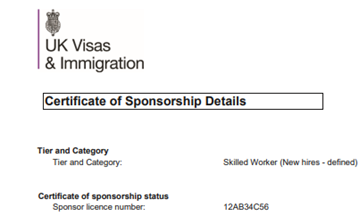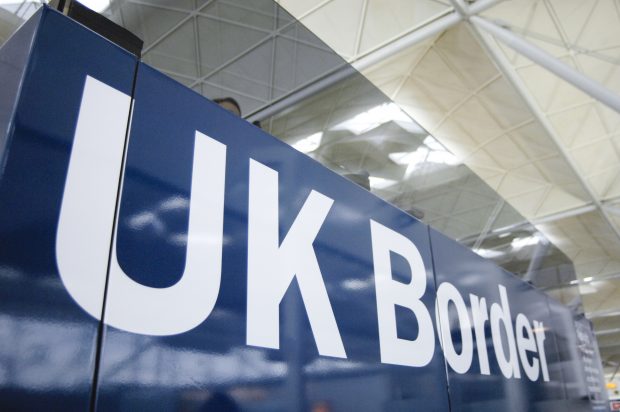When hiring employees in the UK, employers must categorize job roles under Standard Occupational Classification (SOC) codes. SOC codes play a crucial role, especially when sponsoring skilled workers under the UK’s immigration system. In this article, we will break down what SOC codes are, why they matter, and how employers can ensure compliance when hiring international talent.
To fully understand SOC codes, it's essential to also be familiar with the various aspects of sponsorship, such as sponsor licence application, sponsor licence fees, and the Certificate of Sponsorship (CoS).
What is a SOC Code?
An SOC Code, or Standard Occupational Classification Code, is a system used by the Office for National Statistics (ONS) to classify job roles into distinct categories. Each SOC code represents a specific occupation, grouping jobs based on skill level and responsibilities. These codes are essential for employers, particularly when applying for skilled worker visas, as they help to ensure that the job role being sponsored meets the necessary criteria.
Why are SOC Codes Important for Employers?
SOC codes are essential in the hiring process for several reasons:
- Compliance with UK Immigration Rules: Employers must assign the correct SOC code when applying for a Sponsor Licence or when hiring skilled workers from outside the UK. The wrong SOC code can result in visa application rejections or compliance issues during Home Office audits.
- Job Categorization: By using SOC codes, employers ensure that job roles are accurately classified, making it easier to meet sponsor licence compliance and salary thresholds for skilled worker visas.
- Skilled Worker Visa Applications: SOC codes are directly tied to the eligibility criteria for the Skilled Worker Visa. Only specific job roles under eligible SOC codes can qualify for sponsorship, making it crucial for employers to get this right.
How to Find the Correct SOC Code for Your Job Role
Selecting the right SOC code can be challenging, especially for roles that may fit under multiple categories. Here are some steps to help employers find the right SOC code:
- Consult the ONS Database: The Office for National Statistics provides an up-to-date list of SOC codes along with detailed job descriptions. This is an excellent starting point for finding a match for your job role.
- Review Similar Job Titles: Sometimes, job titles may differ, but the duties and skill requirements may align with a particular SOC code. Employers should focus on job responsibilities rather than just job titles.
- Seek Expert Advice: For complex roles or when in doubt, seeking professional advice from immigration experts or legal professionals can ensure compliance with the sponsor management system (SMS).
Find the Minimum Salary for an SOC Code
When sponsoring a worker under a specific SOC Code, it's crucial to meet the minimum salary requirements set by the UK government. Each SOC Code has a corresponding minimum salary, and ensuring compliance can be a vital part of your sponsorship obligations.
You can use the UK Sponsored Worker Salary Calculator to quickly check the minimum salary for your role based on its SOC Code. This tool is easy to use and provides accurate salary thresholds tailored to your industry and job role.
Simply enter the relevant SOC Code, and the calculator will display the minimum salary you need to offer. This is an essential step to ensure you're offering competitive and compliant salaries under the Skilled Worker visa scheme.
Automate Home Office Audits with Borderless
The Borderless platform provides a centralized system for all sponsorships, automating reminders for key tasks and ensuring best practices across your organization, simplifying audit preparation and ongoing compliance.
SOC Codes and Sponsor Licences
When applying for a UK Sponsor Licence, employers must ensure that the job roles they intend to fill with international workers fall under eligible SOC codes. Here’s why this is crucial:
- Compliance Audits: The Home Office regularly audits companies that hold Sponsor Licences. If the wrong SOC code is used in applications, it can lead to penalties or even the revocation of the Sponsor Licence.
- Visa Application Rejections: Assigning the incorrect SOC code can lead to the rejection of Skilled Worker Visa applications, which can cause significant delays in hiring.
Employers need to pay close attention to matching job roles with the correct SOC code to avoid these issues.
SOC Codes and Skilled Worker Visa Sponsorship
SOC codes are critical for sponsoring skilled workers under the UK’s immigration system. Here’s how they impact the process:
- Visa Eligibility: Only jobs under certain SOC codes qualify for the Skilled Worker Visa. Employers must ensure the job role matches one of the eligible codes.
- Salary Thresholds: Each SOC code comes with a minimum salary threshold, which employers must meet to qualify for visa sponsorship. The salary offered must not be below the specified amount for the job role in the SOC code.
Employers should regularly check for updates to the SOC code list, as changes can affect the eligibility of certain job roles for visa sponsorship.
Changes in SOC Codes Over Time
SOC codes evolve to reflect the changing job market. In recent years, new codes have been introduced, and existing codes have been updated to accommodate emerging job roles in industries like technology and healthcare. Employers must stay informed about changes to ensure ongoing compliance with sponsor licence duties.
For example, recent updates include new codes for IT-related roles and healthcare practitioners, reflecting the growing demand in these sectors.
Common Mistakes Employers Make with SOC Codes
When dealing with SOC codes, employers often make the following mistakes:
- Incorrect Job Classification: Choosing the wrong SOC code can result in visa rejections or compliance issues with the Home Office.
- Outdated Codes: Failing to use the most current SOC code list can lead to non-compliance. Always ensure you are referencing the latest version of the SOC code database.
- Salary Mismatch: Offering a salary below the minimum threshold for the SOC code can disqualify a Skilled Worker Visa application.
To avoid these mistakes, employers should double-check job descriptions, SOC code lists, and salary thresholds before submitting visa applications.
Finding the Right SOC Code
To help employers easily find the right SOC code for their job roles, we’ve created a comprehensive table. This table includes the occupation code, job role, related job titles, visa eligibility, and salary thresholds.
Conclusion
SOC codes are a crucial part of the UK’s immigration and employment system. By understanding and using the correct SOC codes, employers can ensure compliance, avoid delays in hiring, and secure skilled talent from abroad. For help navigating SOC codes and applying for Sponsor Licences, feel free to contact us for expert guidance.
FAQs About SOC Codes
How do SOC codes impact Skilled Worker Visa applications?
SOC codes determine whether a job is eligible for a Skilled Worker Visa. Each job must match an approved SOC code to qualify.
What happens if I choose the wrong SOC code?
Choosing the wrong SOC code can lead to visa application rejections or compliance penalties during audits.
Can SOC codes be updated after applying for a visa?
It is possible to amend SOC codes in certain circumstances, but it can complicate the process. It’s best to ensure the correct code is chosen initially.






